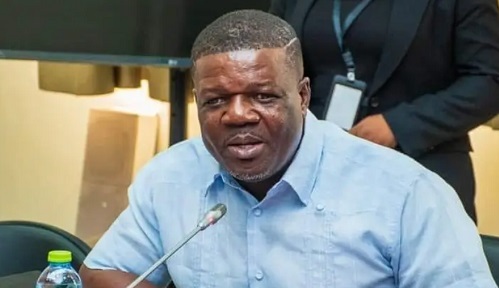
ORAL Committee’s mandate rooted in law, critics misguided – Dafeamekpor
The Member of Parliament for South Dayi, Rockson-Nelson Dafeamekpor has defended the legality of the Operation Recover All Loot (ORAL) Committee, dismissing criticism from opposition members and other skeptics.
Speaking on TV3’s Key Points programme today, he argued that the committee’s mandate is firmly grounded in the constitution.
He pointed to Article 41(f) of the 1992 Constitution, which states that every citizen has a duty to protect public property and combat the misuse of state resources.
“The activities of the ORAL committee are supported by law. This body is tasked with evidence gathering for further government actions, and critics misinterpret its operations,” he said.
Mr Dafeamekpor’s remarks were a response to the former Majority Leader, Osei Kyei-Mensah-Bonsu, who has questioned the legality and modus operandi of the ORAL committee.
“I think those making these complaints, including my colleagues, have erred in their legal reasoning,” the South Dayi MP asserted.
He further criticised the NPP, for what he described as shameful attacks on the committee’s work.
“Some of these criticisms are neither constructive nor based on fact. They are falling into ignominy,” he added.
Operation Recover All Loot (ORAL):
The ORAL committee was established by President John Dramani Mahama as part of efforts to address allegations of corruption and the looting of state resources by former government officials.
The initiative forms a key part of the administration’s anti-corruption drive, aiming to recover state assets and hold individuals accountable for misappropriation.
Operating under a mandate to gather evidence of corrupt practices, the committee works closely with legal and law enforcement agencies. Its activities are designed to complement existing anti-corruption mechanisms, ensuring transparency and accountability.
However, the committee’s formation has drawn criticism from some quarters, with detractors questioning its legal framework and operational transparency.
These criticisms have become a focal point of national debate, with proponents like Dafeamekpor arguing that the initiative aligns with constitutional provisions and serves the public interest.
